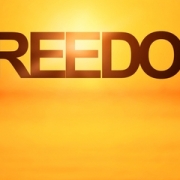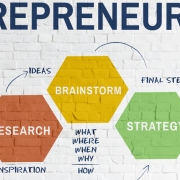In the month prior to the 2016 presidential election, our latest Poetic Justice Warrior gave an interview with outdoorhub.com and was asked about voting. His recommendation was –
Spend a few hours every week studying American history, human nature, and economic theory. Start with “Economics in One Lesson.” Then try Keynes. Then Hayek. Then Marx. Then Hegel. Develop a worldview that you can articulate as well as defend. Test your theory with people who disagree with you. Debate. Argue. Adjust your philosophy as necessary.
And don’t vote until you do this. Voting is not a duty anyway. The message is stunning, and perfect. He is stating that economics is life and moral philosophy is essential. This fits perfectly with the Poetic Justice Warrior Society Manifesto which says, “Our lives are spent accumulating knowledge, learning from mistakes, and establishing principles for living that can only be altered through rational consideration, empirical evidence, and solving contradictions.” It is with purpose and pride that we highlight the ongoing achievements of Mike Rowe as a modern crusader for human flourishing.
Dirt Is Not The Enemy
Rowe’s opinions about education and work are nearly identical to those of Poetic Justice Warrior Booker T. Washington. Washington taught his students skills for honest work, making a living, becoming prosperous, and integrating into mainstream society. Rowe’s hero was his maternal grandfather who “dropped out of the eighth grade to work. He had to. By the time he was 30, he was a master electrician, plumber, carpenter, mason, and mechanic. That guy was, to me, a magician.” His grandfather’s education never ended, and the value he brought to himself, his family, friends, and community are inestimable. This is what entrepreneurs do, and no bureaucracy could plan it. And Rowe has dedicated himself to this work ethic, and to self-creation with his iconic television show Dirty Jobs.
The thing that makes ‘Dirty Jobs’ different is that it’s one of the few shows that portrays work in a way that doesn’t highlight the drudgery. Instead, it highlights the humor. In order to make ‘Dirty Jobs’ authentic, I really can’t be overly informed. The minute I am, I become a host. It’s a very tricky business paying a tribute to work, because TV is very bad at it.
Rowe’s genius is making abstract concepts simple – “Dirty Jobs is maybe the simplest show in the history of TV, with the possible exception of The Gong Show.” He does it by establishing fundamental principles, “I can say the willingness to get dirty has always defined us as a nation, and it’s a hallmark of hard work and a hallmark of fun, and dirt is not the enemy.” It’s the economic way, but the political way is our dominant philosophy, and the currency of the political class is complexity. To them, everyone needs a public university indoctrination. As Rowe explains,
The idea that a four-year degree is the only path to worthwhile knowledge is insane. It’s insane. You’ve got a lot of very, very smart people standing by waiting for somebody else to do the work. Not a recipe for long-term solvency in my opinion.
As a result, there are millions of well-paid career opportunities in America waiting to be filled. As poetic justice would have it, Mike Rowe is doing something about it, he is offering scholarships to individuals who aspire to life-fulfilling work in the skilled trades.
S. W. E. A. T.
The one size fits all solution of the political way, such as obscenely expensive college for all, avoids reality, and has consequences. Rowe calls this the skills gap. Poetic Justice Warrior Maria Montessori believed that education should develop the mind of each child, the purpose is for them to develop principles that will guide their actions. In many cases this means an alternative path toward productive work. According to the Mike Rowe Works Foundation website:
Skilled workers keep our polite society humming along. They are individuals who found opportunity where no one else thought to look. They are entrepreneurs running successful businesses. They are happy people who manage to figure out a positive work-life balance. They don’t resemble the unflattering, blue-collar workers often portrayed in the media.
Not only is Rowe educating America about the 7 million high-paying vocational career opportunities awaiting human minds, his scholarships are available to anyone who meets some simple qualifications:
We’re looking for the next generation of aspiring workers who will work smart and hard. This program doesn’t focus on test scores, grades, or grammar. It’s about the people who share our values and understand the importance of work ethic, personal responsibility, delayed gratification, and a positive attitude.
But its not quite that easy; there is the Skill and Work Ethic Aren’t Taboo (S.W.E.A.T.) pledge for these Poetic Justice Warrior apprentices. The first pledge is “I believe I have won the greatest lottery of all time. I am alive. I walk the earth. I live in America. Above all things, I am grateful.” The last pledge is “I believe that all people are created equal. I also believe that all people make choices. Some choose to be lazy. Some choose to sleep in. I choose to work my butt off.”
The Greaseman Cometh
One original tenet of the Poetic Justice Warrior Society is gratitude. In March 2017 Rowe released one of his famous (The Way I Heard It) podcasts, and used it to pay tribute to two other individuals who are worthy of gratitude. This is what Poetic Justice Warriors do. In the podcast Rowe read an excerpt from Lawrence W. Reed’s book Real Heroes. In it, he tells the story of a skilled laborer, inventor, and entrepreneur named Elijah. He was a young man who worked as a greaseman on America’s early railroads, and the son of a slave who escaped to Canada on the Underground Railroad.
Why does Mike do this? “He’s addicted to paved roads, working electricity, and flushing toilets.” Life is good. In Rowe’s spirit of “I am looking forward to the future, and feeling grateful for the past,” please feel free to open this link to Mike’s 10 minute podcast about Elijah, and take our Self Assessment.
Photo by Fancycrave on Unsplash













